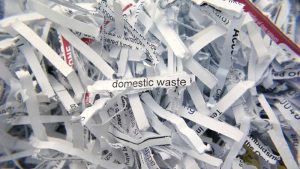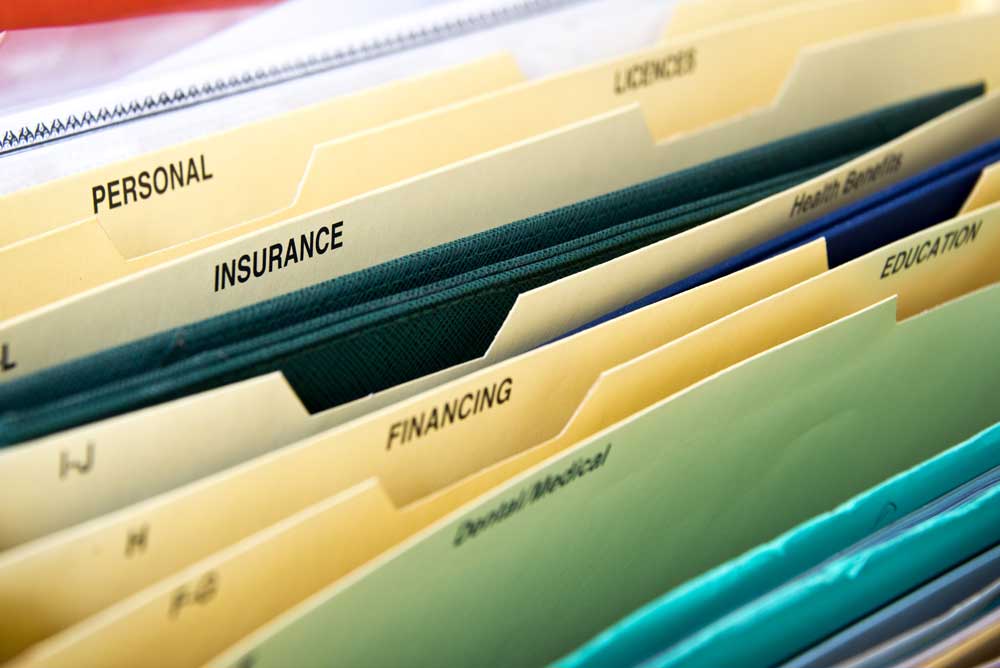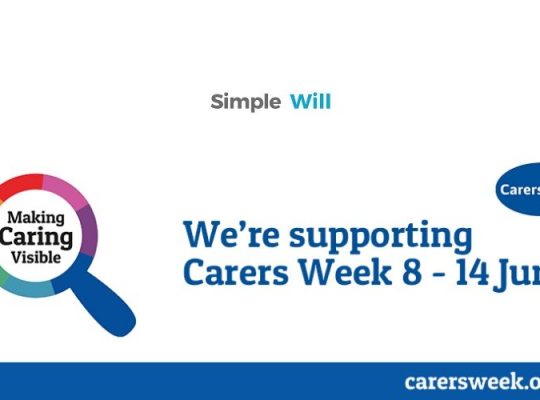Mental Health Awareness Week runs from Monday 18-24 May 2020. The theme this year is ‘Kindness’. With many of us still stuck at home, we’re going to be talking about just one of the ways you can use this time to look after your mind by looking after your paperwork.
How does Mental Health Affect Us?
Mental Health is something that affects us all. Mind estimates that as many as 1 in 4 people in the UK experience mental health issues every year. Even if you’re not personally affected, there’s a high chance of knowing someone who is. Mental Health experts are seeing a significant increase in the number of people experiencing depression and anxiety, compounded by isolation, grief and loneliness during the Coronavirus Pandemic.
Many of us are feeling worried about finances and are concerned about the health of loved ones, so we’re hijacking mental health awareness week to talk about ways in which we can utilise quarantine to sort out our life admin and de-clutter our minds.
The Effects of Drowning in Paperwork
Staying on top of household paperwork can be a huge challenge. Even the most organised and efficient people struggle with this without a system in place.
In the past, we’ve watched (without judgement) clients with piles of paper stashed in boxes kept under their beds, in the bottom of wardrobes or even kept at the back of the garage or the boot of their car. Out of sight and out of mind! Right? Wrong!
We’re all guilty of this; ‘dealing’ with paperwork by ‘filing’ it away. But the truth is, if it’s not properly sorted, ordered and stored, our paperwork has a funny way of niggling away at us. It crops up in our sleep to torment us and when you really, really need that ISA statement, panic quickly sets in.
It’s been proven that mess and clutter can play a significant role in how we feel about our homes and ourselves. Psychology Today argues that it can even cause stress, anxiety and leave us feeling overwhelmed. Cluttered paperwork affects us by:
- Overstimulating our senses that would otherwise be dormant
- Distracts us from things we should be focusing on
- Makes it difficult for us to relax physically and emotionally
- Induces feelings of anxiety due to the fear of the unknown (does that pile contain a bill?)
- Causes frustration from not knowing how to locate something.
How bad is the situation in your house? If you have piles and piles of paperwork dating back to the 1960s, if you run around in a flap of panic when asked to produce a document, or even if you’ve gone paperless then this quick guide to getting your paperwork in order during lock down is for you.
Decluttering Your Paperwork
Before establishing a new filing system the first thing to do is to get rid of any unnecessary documents. Let’s take a look at what to keep and what to shred.
Insurance documents: Only keep insurance policy documents for existing insurance policies. This can include home, car, life and pet insurance. If you’ve got last year’s policy tucked away, it’s time to throw it out!
Statements: Statements for bank accounts and mortgages are typically provided monthly and annually, so there’s little need in keeping these. However, if you’ve changed lender or bank provider then you may want to keep an older version but it’s not necessary.
Bank statements: Most of us have access to online banking and going paperless is definitely something that we would encourage. However, if you like to check a paper statement each month then make sure these are filed away proper each month. Your bank will be able to provide you with older copies of bank statements so there’s no need to keep these for more than a few months.
HMRC Documents: Tax returns are also paperless these days, however, HMRC may still send a tax calculation in the post if requested. Once paid, you don’t need to hang onto these, as they can be retrieved online or through your accountant. HMRC suggest keeping payslips and p45s for at least 22 months, so hang onto these.
Documents You Should Keep
- Certificates: Marriage, birth and death certificates
- Drivers licence, paper and card
- Car documents (including V5 documents of cars that have been sold or scrapped)
- Instruction manuals
- Guarantees and receipts
- House Deeds/Title Certificates: If you own your house fully (there is no mortgage to be paid) then either you or your solicitor will have copies of the title deeds. These need to be kept in a safe place.
- Proof of car tax: Since we long have tax disc these days, only keep the most up to date proof of payment
- Most recent statements belonging to all accounts. Saving accounts, bank or building society accounts, ISAs, Children’s bank accounts, Bonds, Trusts etc.
- Household receipts: Council tax statements, TV licence, (only keep the most up to date statement)
- Your Will: If you have a copy of your Will then make sure it’s in a safe place and your executors know where to find it. Alternatively
 store it with your will writer or solicitor.
store it with your will writer or solicitor. - Utilities: Again, most of these are online now but it’s a good idea to keep a record of who provides what. Having this information to hand is really useful for your executor and Lasting Power of attorney should anything happen to you.
Never throw anything away that contains personal details or bank account information. Always use a shredder to destroy these documents.
Organising Your Paperwork
Now that you’ve shredded your unwanted statements and paperwork (how nice was that?), you should have a more manageable pile of documents ready to be filed.
Step 1. Separate Household Paperwork from Personal Paperwork
Make two piles for your documents. A pile for things relating to you (tax, bank accounts, drivers licence etc) and a pile relating to your home (mortgage details, utilities, guarantees etc). You don’t have to do it this way, but it can make it easier and more manageable.
 Step 2. Invest in Storage
Step 2. Invest in Storage
Depending on the amount of household paperwork you have, you may want to invest in either a ring binder or box file, or allocate a draw. For ease we’d highly recommend stickers to labelling too.
Step 3. Order
You may want to order your document into chronological or alphabetical order, or in order of importance. However you choose to do it is entirely up to you. As long as you know how your system works and you stick to it!
Step 4. File Everything
File everything into its own compartment and label it. Congratulations! You’ve decluttered your home and cleared your mind.
Looking After Your Paperwork
One of the best ways to keep on track of your paperwork is to set aside a bit of time each month to regularly update your filing system. Create a holding place or ‘in’ tray where you can temporarily house your latest documents, statements and receipts. At the end of the month or during your allocated time, file everything from the intray away. Make sure you keep on top of throwing out old documents that are no longer required and add a new compartment/section to your system when new things arise.
For those of you who are paperless you may want to consider printing off and filing away details of all the accounts you hold, and store them in a central place. This will help those who may one day have to sort out your affairs. If they don’t know who you bank with, or who you owe money to this can make things very difficult for them.
File It!
The theme for this years’ Mental Health Awareness Week is ‘kindness’. Be kind to yourself during lockdown and use the time wisely to finally tackle that pile of paperwork. Admin may feel like a thankless task but you’ll feel so much better once it’s done. This is also a great time to work on other aspects of your life like getting a will in place or setting up a Lasting Power of Attorney. We believe that taking simple steps can really help improve your overall well being.
So, if you’re niggled by the mess, the piles of papers and decade old payslips, do something about it. Follow our guide on looking after your paperwork and get decluttering. We promise you’ll feel a sense of clarity, perspective and it’ll put your mind at rest.







